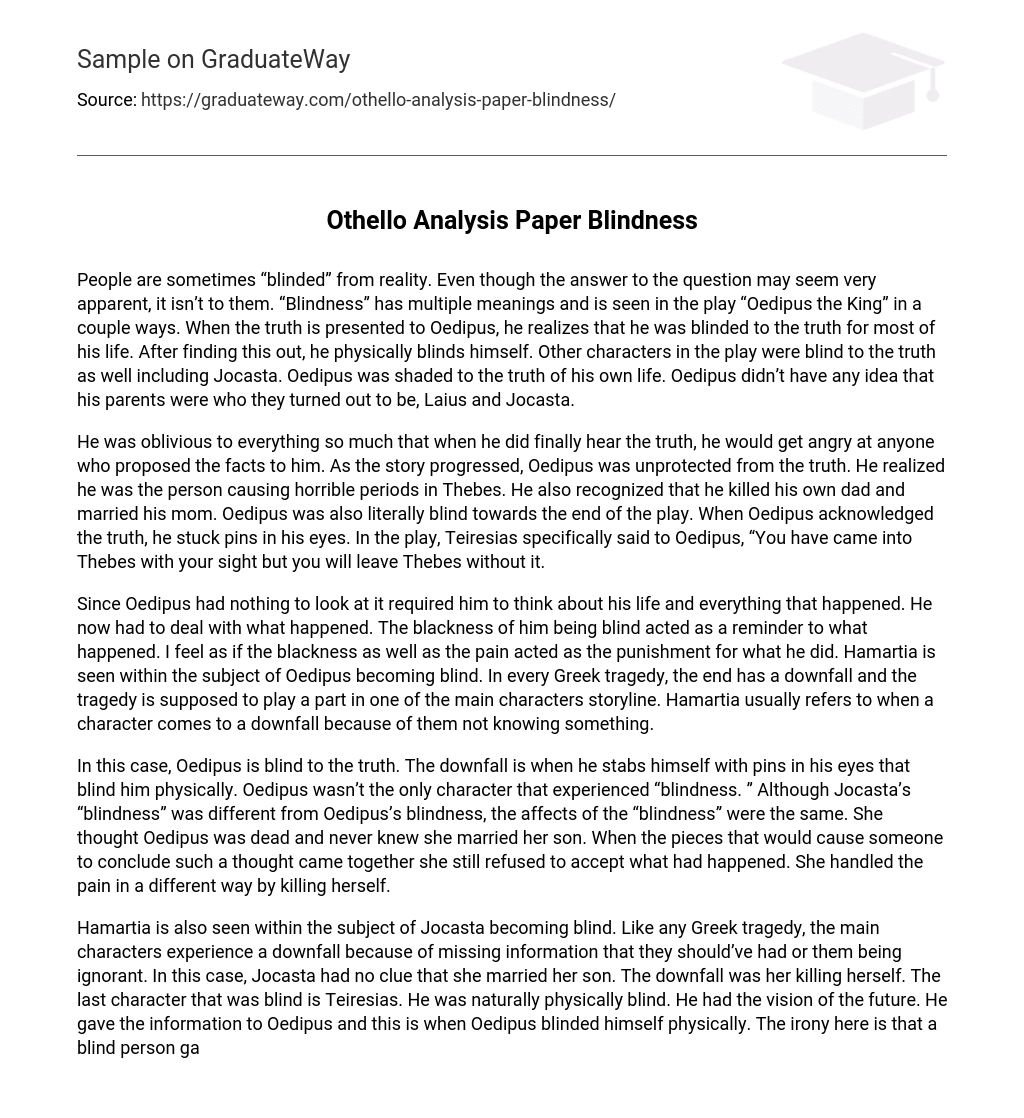The play “Oedipus the King” examines the theme of people’s lack of awareness and their inability to perceive obvious truths. This idea of “blindness” is explored through various characters in the play. Oedipus, upon finally discovering the truth, admits that he had been blind to it for a significant portion of his life. This realization leads him to physically blind himself. Similarly, Jocasta, another character in the play, remains unaware that Oedipus is her own son and thus caught off guard by this revelation. Meanwhile, Oedipus himself remains ignorant of the fact that Laius and Jocasta are his biological parents.
Oedipus, in his state of ignorance, would angrily react to anyone who exposed the truth to him. As the narrative unfolded, he grew susceptible to the truth and realized that he was accountable for Thebes’ troubled times. He also discovered that he had committed patricide and incest by marrying his own mother. Towards the play’s conclusion, Oedipus lost his physical sight. When he ultimately embraced the truth, he even went as far as piercing his own eyes with pins. Teiresias explicitly informed Oedipus in the play: “You entered Thebes with your sight but you will leave Thebes without it.”
Despite his blindness, Oedipus had to reflect on his life and the unfolding events. He now had to confront the consequences of his actions, with the darkness of his blindness always reminding him of his past. In my opinion, both the darkness and the pain serve as punishments for his wrongdoing. The concept of a tragic flaw, also known as hamartia, is clearly evident in Oedipus’ loss of sight. Greek tragedies typically conclude with a downfall where tragedy plays a role in shaping one of the main characters. Hamartia often signifies a character’s downfall resulting from their lack of knowledge.
In this scenario, both Oedipus and Jocasta had different forms of blindness, but the consequences were similar. Oedipus physically blinded himself by stabbing his eyes with pins, while Jocasta remained ignorant of the fact that she had married her own son. Despite the evidence that should have led her to this realization, she denied the truth. Jocasta coped with her anguish by taking her own life.
Hamartia is evident in Jocasta’s blindness, which is a common theme in Greek tragedies where the main characters suffer due to their lack of knowledge or ignorance. Jocasta unknowingly married her own son, which ultimately led to her demise. Teiresias, on the other hand, was inherently blind but possessed the ability to foresee the future. He shared this knowledge with Oedipus, which drove Oedipus to blind himself as a result. The irony lies in the fact that a blind individual provided information that caused someone else to become physically blind.
The physical blindness of Teiresias resulted in the physical blindness of Oedipus, exploring two types of “blindness” in this play: figurative and physical. Oedipus’s journey from ignorance to knowledge was driven by irony, yet when he acquired knowledge, he became more obscured. Additionally, ironic is the fact that a physically blind individual, Teiresias, conveyed information to Oedipus, leading to his physical blindness. Ultimately, Oedipus, Jocasta, and Teiresias all became blind by the end of the play but uncovered the truth.





